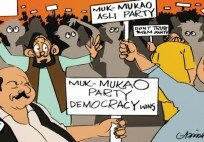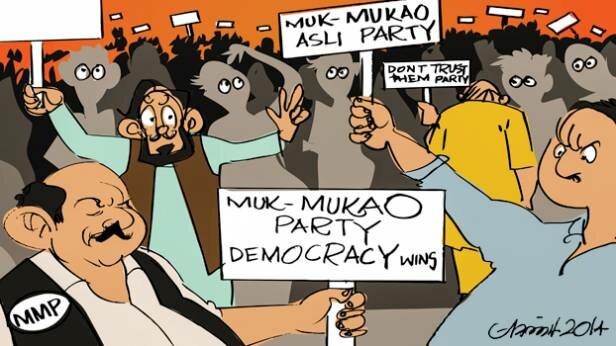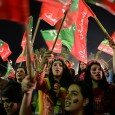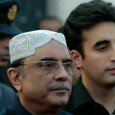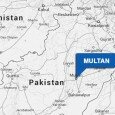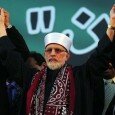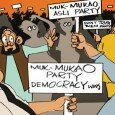By Irfan Bukhari –
It’s all fun and games
As many as two hundred and seventy registered political parties are working in Pakistan. Going through the official list of political parties as enlisted by the Election Commission of Pakistan (ECP), one finds they are formed on the basis of everything from religion, sect, political ideology, language and land to the more traditional issues of poverty and unemployment.
Many of these parties have such few strength in numbers as to virtually exist only on paper; most don’t play any role at all in national politics. Now the question is, why do they even exist?
A number of them were formed to appease the egos of their respective chairpersons who were once part of a national level political party but developed personal differences with their party leadership. These explain the dozens of factions of Pakistan Muslim League and Jamiat Ulama-e-Pakistan.
Commenting on the plethora of political parties in the country, Dr Hassan Askari Rizvi said that it was due to personal polarization. “Political parties in Pakistan revolve around personalities, not ideologies, not institutions. Whenever any office bearer differs with party leadership he gets his own party registered with the ECP,” he said. Dr Askari said that proliferation of political parties was high due to the lack of a democratic culture in them. He said military establishments also created political parties in the country during martial law regimes.
“In emerging democracies worldwide, political parties are either too weak, too personalistic, too constrained by oppressive governments, or too corrupt and out of touch to earn the respect and support of the public,” writes Kenneth Wollack, President National Democratic Institute for International Affairs.
The ECP has so far enlisted 270 political parties. The party which, under the flag of All India Muslim League, ran the movement for the creation of Pakistan and was named Pakistan Muslim League after the creation of the new state in 1947 has a number of registered factions.
The Muslim Leagues as listed by the ECP include: PML (Qaaf) headed by Chaudhry Shujaat Hussain, PML (Functional) headed by Pir Sibghatullah Shah Pir Pagara, PML (J) headed by Muhammad Iqbal Dar, PML (N) headed by Mian Muhammad Nawaz Sharif, PML (Nazaryati) headed by Chaudhry Ishtiaq Ahmed Minhas, PML (Sher-e-Bangal) headed by Qadir Khan Mandokhel, PML (Haqiqi) headed by Naveed Akhtar Khan, PML (Like Minded) headed by Mulazim Hussain, PML (Zia) headed by Muhammad Ijazul Haq and Pakistan Women Muslim League headed by Rubina Shaheen.
This is in addition to 7 other lesser known factions, bringing the total to an absurd total of 17.
Dr Qari Ashfaq Ullah, President PML (Qasim) says that PML (N) was formed by the military dictator General Zia-ul-Haq and PML (Qaaf) was formed by another military dictator General Pervez Musharraf. “PML (Qasim) is the real Muslim League,” he added.
A few parties use their groups to bargain for and sell their allotted-symbols. For instance, the All Pakistan Muslim League (APML) of former president Pervez Musharraf bought the symbol of the eagle, allotted to another party as its mark.
There are around forty registered political parties working on religious or sectarian grounds. The fissures between sects cause as much divisiveness as political egos and the well known religious political entities are divided into various factions. Jamiat Ulama-e-Islam which represents the Deobandi school of Sunni thought is divided into JUI Fazlur Rehman and Samiul Haq groups.
While Jamiat Ulama-e-Pakistan which is representative of the Barelvi school of Sunni thought is divided into a number of registered political factions including JUP (Noorani) headed by Sahibzada Abul Khair Muhammad Zubair, JUP(Niazi) headed by Pir Syed Masoom Hussain Shah Naqvi, and JUP(Nifaz-e-Shariat) headed by Engineer Muhammad Saleem Ullah Khan, among four others.
On religious political parties, Dr Hassan Askari Rizvi says that almost all are based on sectarianism except Jamaat-e-Islami.
It is pertinent to mention here that according to the Political Parties Order 2002 no political party is allowed to, “Promote sectarian, regional, and provincial hatred.” Many of these parties purely operating on the agenda of spreading sectarian hatred are illegal then, a fact repeatedly overlooked by the ECP.
The political divisions in our society are so deep that even the religious minorities are not spared from it. The Christian community of the country too has a number of registered political parties like All Pakistan Christian
League headed by Professor Salamat Akhtar, All Pakistan Minorities Alliance headed by Dr. Paul Jacob Bhatti, Christian Progessive Movement headed by Naila Dayal, Masih Awami Party headed by Emmanuel Zafar and Pakistan Masihi League headed by Dr. John Jee.
Professor Salamat Akhtar, President All Pakistan Christian League lamented the lack of unity among the Christian community. The APCL itself was founded in 1928 with the name of All India Christian League and it supported the All India Muslim League in the Pakistan movement.
After the creation of Pakistan it was renamed and then disbanded by Ayub Khan in 1958. Professor Salamat’s son, Nawaz Salamat, currently settled in Denmark, revived the party a few years back. “We have tried to bring various Christian political parties on one platform, but everyone wants to become ‘President’ of his own party…people in our country like to become generals and not soldiers, therefore these efforts for unity end in fiasco,” Professor Salamat said.
Although each of the 270 parties in the country has a manifesto, at least on paper, few of these do anything to follow what the documents say beyond submitting them to the election commission.
Some people with no serious political ambitions launch political parties just for winning cheap popularity or helping with ulterior motives. Discussions with such party activists reveal that some of the heads of these parties apply for political asylum in Europe or Canada after the passage of a few years, claiming their lives are under threat in Pakistan.
Some of the more interestingly named parties include the Aap Janab Sarkar Party headed by Nawab Dr. Amber Shahzada, All Pakistan Bayrozgar Party headed by Rana Muhammad Ali, Ghareeb Awam Party headed by Syed Farrukh Kamal Hussaini, Jannat Pakistan Party headed by Dr. Asar-ul-Islam Syed, Lower Middle Party headed by Zafar Awan and Shan-e-Pakistan Party headed by Abdul Hafeez Khokhar.
Talking to Pique, Mian Ghulam Rasool, Chairman Aam Admi Justice Party (AAJP) said that he launched his own party after facing defeat in elections from the platform of the Justice Party Pakistan. “I left Justice Party Pakistan and formed my own party as I was unable to pay funds for the previous party,” he added. He said the slogan of his party was to provide flour to the poor as they did not need laptops and metro buses.
Rana Muhammad Ali, President All Pakistan Bayrozgar Party (APBP) told Pique that he had launched the party as no political leader was raising their voice for the rights of the unemployed in parliament. Mr. Rana contested the 2013 general elections from Kasoor and he was the one and only candidate of APBP. “I am getting more support with every passing day. In the next polls many people will be fielded from the APBP platform,” he said.
Interestingly, Mr. Rana himself is unemployed and asserts that the party will award tickets to the unemployed youth only. When asked how unemployed people will bear election expenses, Mr. Rana was answerless and said only that, “We cannot sit idle in disappointment.”
The former Secretary of ECP Kunwar Muhammad Dilshad said that the mushroom growth of political parties must be checked through proper legislation. “The Political Parties Order 2002 has many ambiguities. Anyone can present a constitution, name a few office bearers and a so-called working committee to the ECP and the ECP is then bound to enlist a new political party. We need a more stringent system of registration like there is in India,” Dilshad said.
It was clearly mentioned in the PPO 2002 that the ECP shall, in consultation with the political parties, prepare and publish a code of conduct for the political parties but no such code has been framed yet.
Though the PPO 2002 sets strict legal guidelines for the funding of political parties, barring them from taking foreign donations, the ECP officials admit privately that dozens of religious political parties receive huge foreign aid with no check from the government machinery.
Most of the political parties conduct no intra-party elections, which is otherwise mandatory under law, the PPO 2002 states that the party leader and other office-bearers of every political party at the federal, provincial and local levels, wherever applicable, shall be elected periodically in accordance with the party’s constitution through a ballot based on a democratic and transparent system and every member of the political party shall, subject to the provisions of the party’s constitution, be provided with an equal opportunity of contesting this election.
The smaller parties are unlikely to comply when the intra-party elections in major political groups like the PPP, PML-N, PML-Q and JUI-F are also held non-transparently.
The writer is the managing editor






















